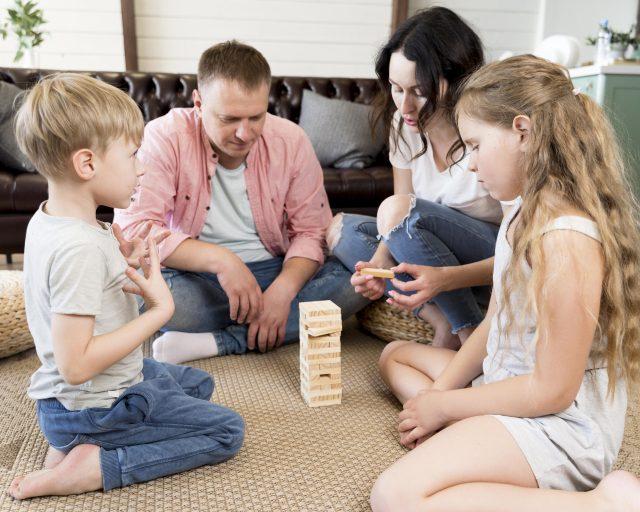How to Help Your Child Thrive in Two Households 
Divorce brings major changes for every member of a family—but for children, the transition to living in two separate households can be especially overwhelming. While parents may be managing their own emotions and logistics, children are often left navigating a world that suddenly feels divided.
The key to helping your child adjust lies in effective co-parenting. When both parents are committed to cooperation, communication, and compassion, the chances of a child thriving increase dramatically. On the other hand, ineffective co-parenting—marked by conflict, inconsistency, or emotional manipulation—can significantly increase stress and lead to long-term emotional consequences.
In this post, we’ll break down the difference between effective and ineffective co-parenting, and offer actionable tips to help your child feel secure, supported, and emotionally healthy in two households.
What Is Effective Co-Parenting?
Effective co-parenting involves both parents working together post-divorce to raise their children in a healthy and stable environment. This doesn’t mean you have to be best friends or agree on everything—but it does mean prioritizing your child’s well-being over personal grievances.
Signs of effective co-parenting include:
-
Open, respectful communication between parents
-
Consistent rules and routines across both homes
-
Flexibility and willingness to compromise
-
Keeping children out of parental conflict
-
Encouraging the child’s relationship with the other parent
-
Making decisions based on what’s best for the child, not what’s easiest or most convenient for the parents
What Is Ineffective Co-Parenting?
Ineffective co-parenting often results from unresolved conflict, lack of communication, or using the child as a go-between. This creates a stressful and unpredictable environment that can lead to emotional and behavioral issues in children.
Red flags of ineffective co-parenting include:
-
Speaking negatively about the other parent in front of the child
-
Inconsistent routines or rules between households
-
Using the child to deliver messages
-
Competing for the child’s loyalty
-
Ignoring or undermining each other’s parenting efforts
-
Making decisions without consulting the other parent
How Divorce Affects Children Emotionally
Children can feel a range of emotions during and after a divorce—confusion, sadness, anger, guilt, and even relief. Moving between two homes adds a layer of instability that can increase anxiety if not handled carefully.

Common challenges children face include:
-
Difficulty adjusting to new routines
-
Fear of abandonment or loss of security
-
Feeling caught in the middle of parental conflicts
-
Loyalty conflicts between parents
-
Trouble in school or with friends due to stress
That’s why creating a child-centered co-parenting strategy is essential.
Tips to Help Your Child Adjust to Living in Two Homes
1. Maintain Consistent Routines:
Try to keep daily routines—bedtimes, homework schedules, meals—as similar as possible in both homes. Consistency helps children feel safe.
2. Communicate Openly but Appropriately:
Talk to your child about what’s happening, using age-appropriate language. Encourage them to express their feelings, and listen without judgment.
3. Keep Conflict Away from Your Child:
Never argue or speak negatively about the other parent in front of your child. Shield them from adult issues and make your home a safe space.
4. Use Shared Calendars and Tools:
Coordinating school, extracurriculars, and holidays can be challenging. Use shared calendars or parenting apps to stay organized and avoid misunderstandings.
5. Support Their Relationship with the Other Parent:
Help your child stay connected with the other parent through calls, texts, or virtual chats. Encourage a positive relationship—even if your own is strained.
6. Be Flexible and Cooperative:
Unexpected events will happen. Show your child that you and your co-parent can adapt and work as a team, even after separation.
7. Seek Professional Help if Needed:
Family counseling or child therapy can be incredibly helpful, especially if your child is struggling with the adjustment.
Co-Parenting Is a Skill—Not a Feeling.
Remember, you don’t have to feel good about your ex to be a great co-parent. Co-parenting is a long-term commitment to your child’s health and happiness. When both parents show up with empathy, respect, and a shared purpose, children feel the difference.
Conclusion: Put Your Child First—Always
Divorce changes your family, but it doesn’t have to harm your child. Effective co-parenting is one of the greatest gifts you can give your child during and after a separation. By minimizing conflict, maintaining consistency, and working as a team, you create a more peaceful, predictable world for your child to grow and thrive in.
Need Support With Your Co-Parenting Journey?
If you’re navigating the challenges of post-divorce parenting, you’re not alone. Contact us today to learn how we can help you build a healthy, child-centered co-parenting plan.
Visit us at: www.couplesinstituteofcolorado.com
Or Schedule an appointment today
7120 East Orchard Rd., Suite 303
Englewood, CO 80111
818-497-7034


